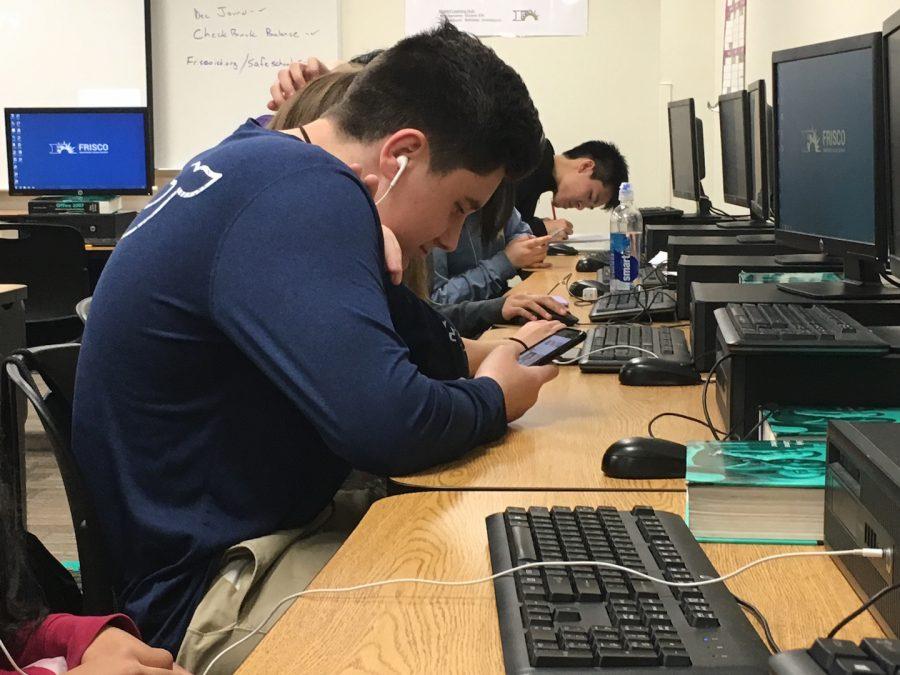Practice safe sharing in 2017
In recent weeks, you’ve seen many school organizations promoting positive aspects of school culture.
However, there have been multiple incidents where social media has been used to post some not so noble things.
Regardless of posts being positive or negative, teens are still active members of social media.
“I feel like it’s very seldom that you come across a teen that doesn’t have a Twitter, or a Snapchat, or a Facebook, or an Instagram,” Assistant Principal Allison Ginn said.
“I get on social media every day but I think that’s what most high schoolers do,” senior Dani Clower said.
As the social media platform continues to grow, so does the amount of communication that takes place.
“Other than at school when you talk to your friends and hang out with them, from the time you wake until the time you go to bed, you’re on social media. That’s how you communicate with people,” sophomore Peyton Enck said.
“The reality is it’s part of your world. It’s part of how you communicate. It’s one of the biggest ways you communicate. So it’s part of your life that’s probably not going to change,” Digital Learning Coach Ann Helou said.
However, with mass communication comes the risk of oversharing.
“I think teens have this need for everybody to know what they’re doing all the time. Like my parents don’t understand it at all…’Why do you not like privacy?’ I’m like ‘It’s not about privacy, I just want people to know what I’m doing you know’,” Clower said.
While it is okay to share information via social media, school administrators warn students to be careful about what they post.
“Adults want to make sure that you’re taking certain precautions as students and as young people when it comes to your behavior online. What you’re doing online, who you’re talking with online and what kind of information you’re putting out there about yourself,” Helou said.
“I think that adults advocate for social media safety for two reasons. First of all because we’ve been there and done that. We’ve probably all posted something that we’ve regretted,” Ginn said.
One snap can last up to 10 seconds.
However, the consequences of posting it could have some lasting effects depending on what you post.
So those scandalous mirror pictures, inappropriate tweets, and drug references won’t only be seen by your fellow followers, but potential employers.
“You hear it all the time but colleges are looking at that you know. Jobs are looking at that,” Clower said.
Even creating post involving other students could have school repercussions.
“There can be consequences anywhere from TNL (Thursday Night Live), Saturday School, ISS (In-School Suspension), OSS (Out of School Suspension), to alternative placement at the SOC (Student Opportunity Center), possibly even expulsion depending on what the threat truly is. And so I’d hate to see anything that started out as some little subtweet turn into a massive group text to then turn into student discipline,” Ginn said.
Avoiding disciplinary actions could be as simple as remaining positive on social media.
“I definitely encourage myself to post positive things, retweet positive things,” Enck said.
“Post as if you’d want someone else to post that about you,” senior Hailey Hawkins said.
Although you may have the freedom to post as you please, remember that not everything has to be known.

